
When she came into the world in October 1784, the prospects for Sarah Biffin were far from great. Born into poverty to a Somerset shoemaker and his wife, young Sarah had no arms, hands or legs - a condition later defined as phocomelia. And yet, despite her circumstances, this woman's extraordinary talents would find her courted and celebrated by royalty and nobility across Europe.
As a child growing up on the edge of the Quantock Hills, Biffin was understandably envious of the physical freedom enjoyed by her siblings, so the young girl forged a plan. "At the age of eight years," she later recorded, "I was very desirous of acquiring the use of my needle; but my parents discouraged the idea, thinking it wholly impracticable. I was not, however, intimidated, and whenever my father and mother were absent, I was continually practising my every invention; till at length I could, with my mouth - thread a needle - tie a knot - do fancy work - cut out and make my own dresses."
That Biffin recorded these thoughts in a slim volume of autobiography indicates another skill she developed: writing. Indeed, an admirer later praised her "excellent lady's handwriting as we should call it but executed, as all else, by her mouth alone".
By the time Biffin was 13, her parents agreed to an offer by Emmanuel Dukes, a promoter of travelling shows across southwest England. The combination of her physical appearance (her height in adulthood was just 37 inches) and her exceptionally dextrous skills would thought Dukes, make her a tremendous draw as his sideshows moved around the region. Biffin had, effectively, become part of a freak show. "The Reader may easily think it impossible she should be capable of doing what is inserted in this Bill,” explained one of the show's posters, "but if she cannot... the Conductor will forfeit 1000 Guineas."
This story is from the {{IssueName}} edition of {{MagazineName}}.
Start your 7-day Magzter GOLD free trial to access thousands of curated premium stories, and 9,000+ magazines and newspapers.
Already a subscriber ? Sign In
This story is from the {{IssueName}} edition of {{MagazineName}}.
Start your 7-day Magzter GOLD free trial to access thousands of curated premium stories, and 9,000+ magazines and newspapers.
Already a subscriber? Sign In
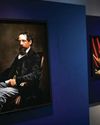
'Dickens's evocation of the fears, excitement and confusion of childhood is peerless'
DR LEE JACKSON ON WHY CHARLES DICKENS REMAINS RELEVANT TODAY
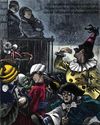
THE AUTHOR GOES ABROAD
Dickens expanded his horizons and boosted his fan-base by venturing overseas - but global fame came with a cost
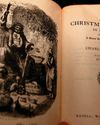
REVIVING THE FESTIVE SPIRIT
A Christmas Carol wasn't just a bestseller - it changed the way that Britons chose to mark the festive season
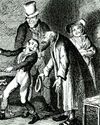
GIVING THE POOR A VOICE
From Hard Times to Oliver Twist, Charles Dickens used his pen to help illuminate the lives of the less fortunate
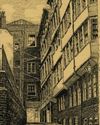
A JOURNEY THROUGH DICKENS'S LONDON
The works of Charles Dickens are synonymous with visions of Victorian London. We talk to Dr Lee Jackson about the author's love of the capital, and the locations that most inspired him
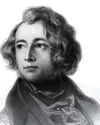
EXCEEDING EXPECTATIONS
Dr Lee Jackson chronicles Charles Dickens's journey from down-at-luck teenager to titan of Victorian literature
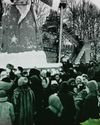
GIFTS, TREES & FEASTING
We take a journey through the photo archives to reveal how Christmas and its many traditions have been celebrated over the years - and around the world
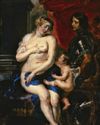
WHAT GREAT PAINTINGS SAY
We explore the story behind an allegorical painting that celebrates the triumph of love over hate, peace over war
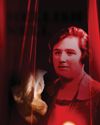
HELLISH NELL
Malcolm Gaskill delves into the life of Helen Duncan - the fraudulent Scottish medium whose ectoplasm-filled seances saw her ending up on the wrong side of the law

7 THINGS YOU (PROBABLY) DIDN'T KNOW ABOUT THE WHITE HOUSE
Presidential historian Dr Lindsay M Chervinsky reveals some of the most surprising facts about the world-famous US residence